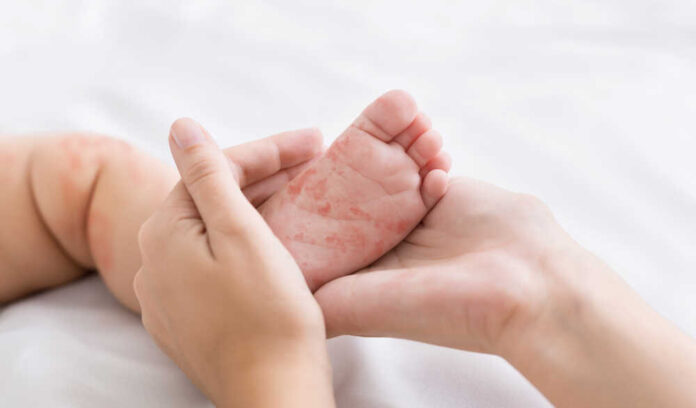Over 900 measles cases had been documented by the end of February in Europe, surpassing the total for 2022. This highlights the worldwide threat posed by measles epidemics. Despite great strides in measles containment, the disease is again a serious threat.
Measles, commonly known as rubeola, is highly contagious and spreads through the air. The fact that HPV may remain infectious for almost two hours after being left on a surface raises serious concerns. There is a 90% chance that a person with measles will infect others they come into touch with.
Millions of people were routinely infected by measles epidemics before 1963. In the United States and many other nations, the virus was thought to have been eradicated twenty years ago when preventative health measures were implemented, such as vaccination and an upgraded healthcare system. However, it is estimated that there were still over 733,000 measles-related fatalities worldwide in 2000. Twenty-two nations are still dealing with large measles outbreaks that began in 2021 and affected an estimated 9 million people.
The lack of effective antiviral therapy for measles is a significant obstacle. Managing symptoms and reducing complications are the primary goals of medical treatment. An elevated body temperature is a frequent sign of measles and may be treated with ordinary pain relievers like ibuprofen or acetaminophen.
There are three stages to a measles infection: incubation, prodrome, and rash. About a quarter of people who get measles in the United States must be hospitalized, and between one and three people per thousand die from the disease.
Due to supply chain interruptions and other causes, measles vaccination programs were significantly slowed during the epidemic. Nearly 40 nations, primarily in Asia and Africa, have been identified as having an epidemic risk due to measles. There is conflicting evidence from studies of measles epidemics on the vaccine’s ability to prevent the spread of the disease and the development of immunity in those who have already been immunized.
Breakthrough infections can occur for various reasons, including vaccination failure, incorrect timing or dose, strain mismatches, immune system variables, and age.
However, the general health of the community must be taken into account. This includes ensuring that people eat well, get enough sleep, and avoid behaviors that might compromise their immune systems. Proper herd immunity is best built organically via bettering lifestyle, adopting better food, and applying natural and holistic preventative techniques rather than relying entirely on vaccination efforts.














